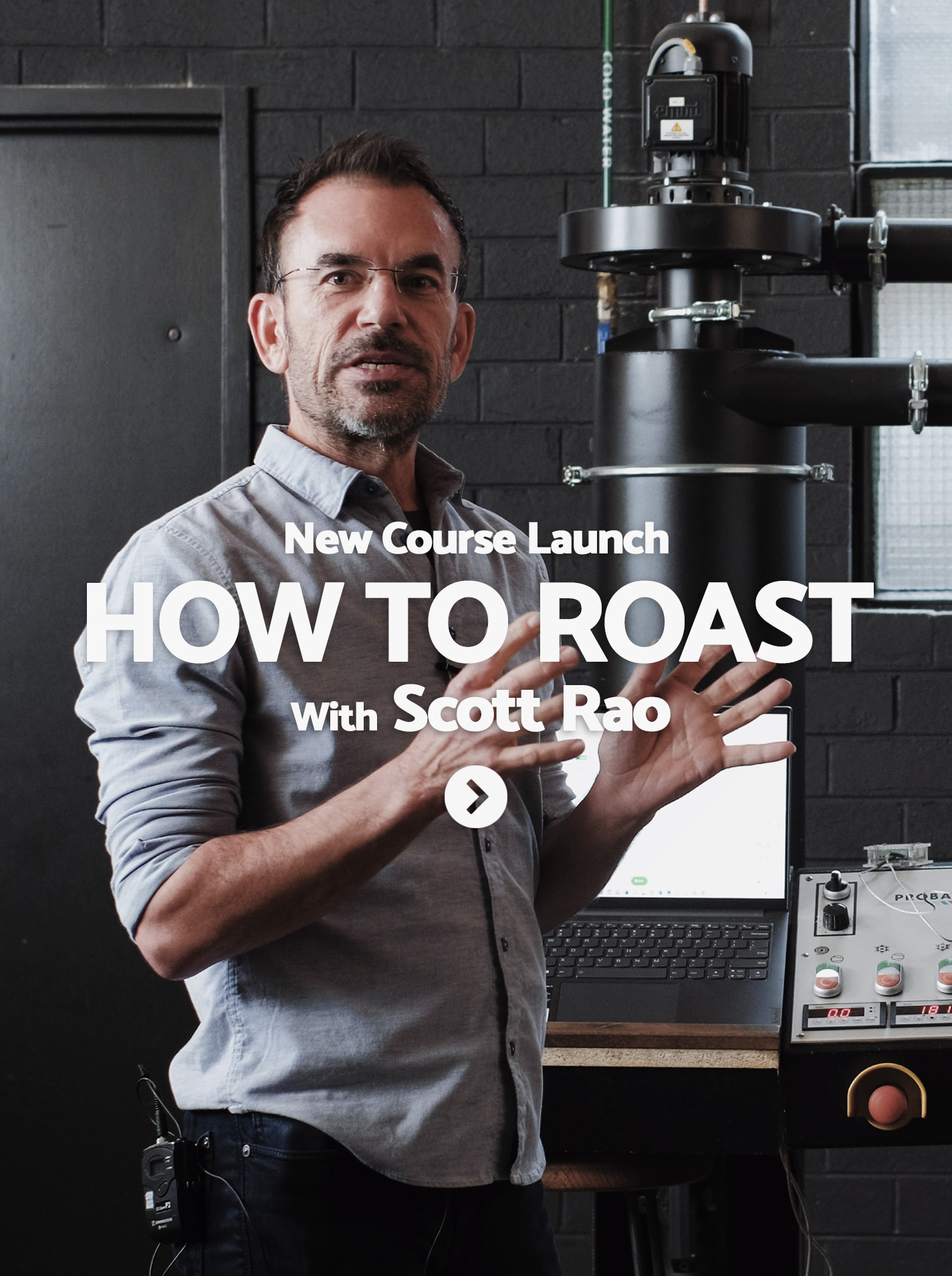Just before the weekend you may have stumbled upon a press release from World Coffee Events. It details some significant rule changes to the World Barista Championship for 2016 onwards. See the article here.
I’d like to spend this week exploring and discussing these changes, and how they will affect the competition. I’ve also collected some responses and thoughts from some heavy-hitters around the world to give a broader perspective. Thanks to Hidenori Izaki, James Hoffmann, Gwilym Davies, and John Gordon for their time and minds.
In summary, there are two aspects of the competition that are changing: the cappuccino course, and grinders. Cappuccinos will become a “Milk Drink Course”, eschewing the 150ml cup size and welcoming whatever the Barista prefers to serve. The supplied grinder – Mahlkonig’s K30 – will be the exclusive and compulsory grinder for all competitors. In no surprise to anyone, this announcement ruffled a few feathers. Many competitors and those involved in the competitions voiced their opinions on the social mediums, resulting in many disjointed and ultimately unproductive 140 character conversations.
Before I start, I must remind everyone reading that I love the WBC and have been an active competitor for the last 6 years. During that time I’ve developed over 15 different routines for various competitions, gained an incredible network and received innumerable advantages for both my life and career. I won’t be stopping any time soon. I also need to disclose my relationship with Mahlkonig. I am an ambassador for the company, and am paid to educate others about, and represent, their products. This relationship in no way affects my opinions in this article. Mahlkonig didn’t ask to proof read or censor it, and I wouldn’t have written it differently if they had. Let’s dig in!
The Milk Course
For as long as I can remember, the cappuccino course has struck fear in the hearts of competitors. The cappuccino course was initially -serendipitously or deliberately- designed to be devilishly difficult to master; but not quite impossible. I’ve found myself remarking a number of times about how elegant and deceptively simple the cappuccino course can be, and over the years have developed a humble respect for its difficulty. A single espresso made from half of a 20-21g dose must be truly excellent in a number of ways to make a 150ml cappuccino shine. If your roast is underdeveloped, coffee choice poor, technique sloppy, grinder sub-par, milk texture lacking or any combination of the above, your cappuccino won’t score well. The cappuccino course has always separated the women from the girls, if you will. I love the cappuccino course because it forces Baristas to investigate ways to roast their coffee so it’s more soluble, use grinders that can extract more, develop techniques that create even extractions, texture milk to the very edge of creaminess, and choose coffees that are appropriate. If they don’t, their cappuccinos will taste weak and underwhelming. Whether intentional or not, the cappuccino course in its current form is responsible for the obligatory improvement of countless Baristas around the world. This is why I love competition. It forces one to improve more than they would on their own. These new rules change all of that.
1. The freedom to choose the volume of the drink will promote laziness and could result in the stagnation of Roasting and Barista technique.
Underdeveloped roasts (see my recent post here) are rampant in the Specialty Coffee Industry right now (see also Honey Co Coffee’s article on sour coffee). The ability to use less milk in the milk course reduces the responsibility of the roaster to improve development and the Barista to improve her technique. If one’s milk drink tastes weak, one can just reduce the amount of milk. It will certainly taste stronger, but it won’t be the best milk drink possible. A stronger milky drink from an underdeveloped roast or poor preparation won’t be rich, or sweet, or satisfying. It will likely be unbalanced, jarring and sour.
2. I love me a good Cappuccino. Well made Cappuccinos are rare. These changes could put them on the endangered list.
Without a worldwide and influential competition like WBC dictating what cappuccinos are, and celebrating them through inclusion in the rules, they could become few and far between. Gwilym Davies (2009 WBC Champion) has a few points to share along these lines:
“The WCE sets internationally accepted standards. The definition of a capp could now be set by the mass market (2nd wave chains) which are stronger at marketing and sales.
The capp is the most difficult milk drink to make: the balance of foam depth, bubble size and temp is a skill baristas should have, like being able to pour a classic capp, not just a swan.
I like a 5oz single Capp made well and it is very difficult to get, I fear it will now be even harder.”
3. Opening up the definition for the Milk Course will increase judging subjectivity and bias enormously.
I’ve never met anyone that enjoys piccolo lattes, cortados, macchiatos, large cappuccinos and flat whites equally. This is because personal preference plays a massive role in how you perceive and evaluate a cup of coffee. If you hated macchiatos and a Barista competitor served one up to you, your personal bias – and perhaps prejudice – would influence the score of that drink even if you didn’t want it to. Competitions are already incredibly subjective affairs. There are myriad ways prejudice, bias and error can affect a judge’s scores. By opening up the definition of the Milk Course to ‘anything’, it will be even harder for judges to score Baristas accurately and fairly compared to one another. I have no doubt the scoring protocol will change with this new course. Nevertheless, any scoresheet will have an extremely hard time removing the incredible amount of subjectivity that has arrived alongside it. Will they be looking for balance, clarity of coffee flavour, accuracy of descriptors or something else? Only time will tell.
4. The Milk Course opens the door to more experimentation, creativity and previously unfavored coffees. It also puts more focus on the “forgotten course”.
The ability to manipulate the strength of the Milk Course will mean Baristas can readily choose coffees that would’ve been on the black list in previous years. Many washed Ethiopians, Kenyans and similar will become much more viable options under the new rules and I think this is great! A strong, juicy Kenyan Cappuccino, or a perfumed Yirgacheffe latte – when executed correctly – can be absolutely delightful. I’m also looking forward to seeing new combinations of milk and coffee being explored. Talking about ratios, dilution and texture will become de rigueur (which fascinates me) and competitors will be able to tailor a milk drink specifically to their coffee. This level of customisation certainly improves a Barista’s ability to serve drinks relevant to their coffee with honesty and intent. Cappuccinos are regularly perceived as the course you have to serve alongside an interesting espresso and signature drink. These rule changes will hopefully garner the humble Milk Course an even footing with the other drinks. Here are some words on this point from our Commander in Chief, Current WBC Champion Hidenori Izaki:
“The point that got my interest is the Milk Course. The Cappuccino category hasn’t been drastically changed for past 15 years, even though Specialty coffee has been progressing far beyond with experimentation in variety, process, roasting, and technical brewing areas.
The milk drinks actually served at cafes are also different from each country. This new Milk Course affords Baristas freedom to represent the flavor profile that they want judges to taste. I believe that you’ll see more innovation, creativity and originality from the change of rules and regulations.”
It’s not all bad, but there are certainly some aspects of the Milk Course – especially judging and scoring – that will need to be watertight for it to succeed.
The Grinder
For serious Barista competitors, the grinder has always been a hotly debated and seriously considered piece of kit. In terms of technical scores and workflow, it’s everything. In terms of sensory scores, it plays a massive part in how your coffee will taste. For as long as I’ve known the competitions the espresso machine, water, baskets and cleaning products are all compulsory. So why not the grinder? Just like the Milk Course, there are pros and cons to the grinder becoming compulsory. All things considered, I’m in favour of this change.
1. A compulsory grinder levels the playing field.
As I mentioned above, the competitions already have a lot of subjectivity involved. The more we can “level the playing field” and focus on what really makes one Barista better than another, the better the competition will be. This rule change will place a lot more focus on Barista Technique and coffee choice. That is, their dosing, distribution, tamping, recipe and coffee. All of these things are crucial, and with a consistent grinder, the most skilled practitioner will yield a better result. Most Baristas around the world never get to choose their grinder. They make do with the equipment provided. Another aspect to this is levelling the financial playing field. Grinders are expensive, and I’d be glad to see many more first time and independent competitors towelling up the spoilt, well-supported Baristas from larger companies (I am one of those spoilt Barista competitors, so I feel like I’m allowed to say that). James Hoffmann raises an interesting point from when he competed and won the WBC in 2007:
“It’s a tricky subject to comment on succinctly. When I competed in 2007 I used the sponsored grinder, which seemed to shock a lot of people. I didn’t really have a job at that time, and I simply couldn’t afford to ship a grinder across the world. As such, I actually like the idea of a level playing field.
Barista competition isn’t about replicating the cafe, or the real world. It is a game, sport if you will, based on making coffee. The competition has a positive impact on many aspects of speciality coffee, and if this decision helps make the competition more sustainable then I am for it.
I understand that people will be frustrated, that they feel that this will deprive them of the ability to serve what they want – but that could be said about everything from the machine to the water. I hope this doesn’t put people off competing – it would be a shame for them to miss out on all of the benefits of competition.”
2. It could inhibit grinder development and discovery.
Now, I’m not saying the Mahlkonig will stop developing new grinders (quite the opposite mind you) but I am aware that this rule won’t allow Baristas to bring new ideas and equipment to the competition stage. In 2013 I brought the EK43 to the party, and – without an unbearable amount of hubris – I think I can say that it contributed to changing the way a large number of Baristas around the world brew and think about espresso.
Will this rule allow us to miss out on the next EK43? John Gordon, frequent UK Barista Champ puts it well:
“Since 2009 my driving force to compete in barista competitions has been to better myself, my skills, my knowledge and my understanding of all things coffee. Competition has a great deal to do with my growth as it has always pushed me to explore something new, experiment and push the competition boundaries to create something new and hopefully amazing, from techniques and concepts to imaginative theories and ideas; all based on that constant growth throughout the training period for competition.
Similar paths of thinking have brought such rapid progression to our industry. Technology that we would not have dreamed of – even decades old equipment being given new life – have been innovated, discovered and rediscovered because of thought provoking barista competition routines. Baristas and coffee professionals busting boundaries and challenging the industry is what will keep the momentum going. With restriction comes frustration and frustration leads to paths dividing and another direction being taken.
‘Level the playing field’ it kind of feels like giving a group of small kids all 1st place in a running race just because they all participated. Where is the drive to do or be better?
The point that our industry is at with grinders right now is so important. Espresso machines are smashing the way forward and grinders are being left behind and it’s just now that the momentum on grinders is picking up. Let’s not restrict the imagination, inspiration and innovation of brilliant coffee professionals.”
3. No restrictions on grinders is unfair to Mahlkonig.
The espresso machine sponsors put in hard yards and stacks of money to support the competition. They have a strong presence at every round and their teams are on call. As payment for this, every competitor must use their machines. Mahlkonig puts in a similar level of effort, but their grinders haven’t been represented as strongly because they’re not compulsory. Without the grinder sponsor receiving adequate upside to their investment, they’d rather back out. If that happens there wouldn’t be a grinder sponsor, or a healthy competition.
4. Is it unfair for competitors unfamiliar with the K30?
The best Baristas are adaptive, resourceful and knowledgeable about equipment. I don’t think a compulsory K30 is unfair in this respect. The grinders are hardly difficult to come across, and one can learn their intricacies in minutes. They make delicious espresso, and pose no real limitations on the traditional and existing styles of espresso preparation. Some competitors will complain, as Gwilym explains below, although I would employ the classic saying “a bad tradesman blames his tools”. If the playing field is indeed levelled then this isn’t an issue. Here’s Gwilym: “I do worry the grinder decision could backfire on Mahlkonig, it [compulsory grinders] seems to have worked in the USA but the that is not the mirror to the world. Culture is very different elsewhere. I have a feeling competitors will get used to their own grinder and find changing to the K30 an awkward experience, not because it is worse but because it is different, and then bad mouth the K30. I really do not see the grinder decision to be a worry to the long term direction & growth of Speciality.”
In Conclusion
It’s somewhat confusing that the WBC has simultaneously moved towards more and less freedom for Baristas. These rule changes haven’t broken the WBC or killed its spirit like some have ventured to say, but they will definitely shift the landscape. I for one am looking forward to some crazy milk drinks, exceptionally proficient usage and understanding of the K30, and mind-bending ideas still being thrown across the judge’s table. The competition is alive and well, and I still heartily recommend that every Barista try doing it at least once! I’ll finish with a quote from Gwilym because I love him dearly:
“I like that there has been change, the best thing about rule changes is that things are happening, there is nothing like change to get people thinking & doing.”




0 Comments